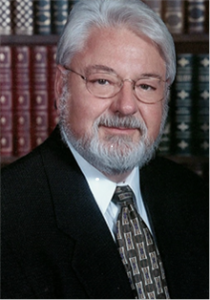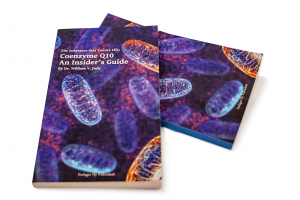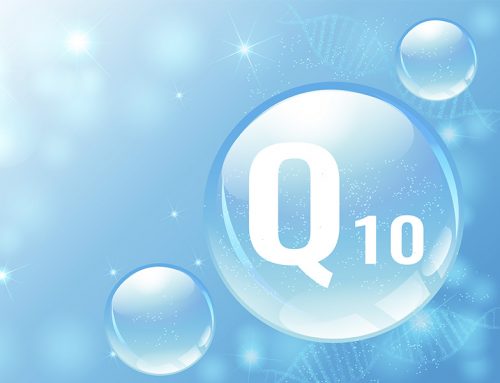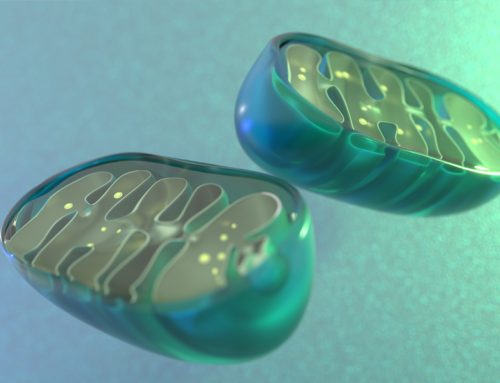
Dr. William Judy, founder and president of SIBR Research, says that individuals vary in the extent to which their cells synthesize less CoQ10 with increasing age in the adult years. Generally, though, he is concerned if an individual has a blood CoQ10 concentration below 0.60 micrograms per milliliter.
As we get older – and more susceptible to aging-related diseases – the mitochondria and the endoplasmic reticula in our cells synthesize significantly less Coenzyme Q10. This seems to be especially true of CoQ10 bio-synthesis in the heart muscle cells, kidney cells, leg muscle cells, and abdominal wall muscle cells [Díaz-Casado 2019].
In some human tissues, the highest levels of CoQ10 are found in 20-year-olds. After the 20’s comes the ageing-related decline in CoQ10 levels in various human tissues [Kalén 1989].
Bio-energetic function of CoQ10
Diminished concentrations of CoQ10 in the cells and tissues can cause deterioration of the cellular process of ATP energy production; CoQ10 is an essential component of the process [Bhagavan 2006].
Antioxidant function of CoQ10
The mitochondria are the major source of harmful free radical production in the cells. Accordingly, the mitochondria are susceptible to oxidative damage.
CoQ10 in its reduced state, ubiquinol, is a powerful endogenously synthesized antioxidant that is present in all membranes. CoQ10 thus protects lipids, proteins, and DNA against harmful oxidative damage [Bhagavan 2006].
Note: At low levels, the free radicals generated in the mitochondria have a function in cellular signaling pathways. It is the excessive levels of free radicals that cause oxidative damage.
The Evidence for CoQ10 Supplementation During Ageing
Animal studies have shown that supplementation with CoQ10 can increase the concentration of CoQ10 in plasma and liver significantly and the concentration of CoQ10 and in the heart, kidney and skeletal muscle moderately [Díaz-Casado 2019].
Numerous clinical studies indicate that supplementation of humans with Coenzyme Q10 at daily doses of 100-300 milligrams for 3 months or more can increase blood CoQ10 levels significantly [Díaz-Casado 2019].
CoQ10 supplements taken with a meal containing some fat and taken in divided doses will give a better absorption and bioavailability. Two times 100 milligrams of CoQ10 daily will give a better uptake than 200 milligrams one time a day [Singh 2005].
Clinical Benefits of CoQ10 Supplementation

An excellent summary of the clinical trial evidence for CoQ10 supplementation can be found in Dr. William Judy’s book, Insider’s Guide to Coenzyme Q10, available from amazon.com, ISBN: 978-87-7776-186-7.
Daily CoQ10 supplementation of chronic heart failure patients (average age: 63 years) with three times 100 milligrams of CoQ10 in the ubiquinone form for two years, as an adjunct to conventional heart failure treatment, resulted in significantly improved symptoms and survival compared to placebo treatment [Mortensen 2014; Mortensen 2019].
Daily supplementation of live-at-home senior citizens (average age: 78 years) with a daily combination of two times 100 milligrams of CoQ10 in the ubiquinone form and 200 micrograms of selenium in a high-selenium yeast preparation for four years resulted in significantly reduced risk of death from heart disease, significantly improved heart function, and significantly improved health-related quality of life [Alehagen 2013; Johansson 2015]. The health benefits of the combination supplementation for four years persisted through the 12th year of follow-up [Alehagen 2018].
Conclusion: CoQ10 Supplementation and Ageing
- CoQ10 supplementation has shown therapeutic benefits in randomized controlled clinical trials.
- CoQ10 supplements are not all equally well absorbed.
- CoQ10 supplements’ health benefits depend upon the tissue uptake and bioavailability of the CoQ10.
- CoQ10 bioavailability depends much more on the manufacturer’s formulation of the CoQ10 supplement – the choice of carrier lipids and the heating/cooling process – than it does on the form of the CoQ10 – whether ubiquinone or ubiquinol [López-Lluch 2019].
It can be a waste of money to buy a less expensive and less well formulated CoQ10 supplement.
Read our key article about CoQ10 and cardiovascular health in elderly people
Sources
Alehagen U, Johansson P, Bjornstedt M, et al. Cardiovascular mortality and N-terminal-proBNP reduced after combined selenium and coenzyme Q10 supplementation: a 5-year prospective randomized double-blind placebo-controlled trial among elderly Swedish citizens. Int J Cardiol. 2013;167(5):1860-6.
Alehagen U, Aaseth J, Alexander J, Johansson P. Still reduced cardiovascular mortality 12 years after supplementation with selenium and coenzyme Q10 for four years: A validation of previous 10-year follow-up results of a prospective randomized double-blind placebo-controlled trial in elderly. Plos one. 2018 ;13(4):e0193120.
Bhagavan HN, Chopra RK. Coenzyme Q10: absorption, tissue uptake, metabolism and pharmacokinetics. Free Radic Res. 2006 May;40(5):445-53.
Díaz-Casado ME, Quiles JL, Barriocanal-Casado E, González-García P, Battino M, López LC, Varela-López A. The paradox of Coenzyme Q10 in aging. Nutrients. 2019 Sep 14;11(9):2221.
Johansson P, Dahlström Ö, Dahlström U, Alehagen U. Improved Health-Related Quality of Life, and More Days out of Hospital with Supplementation with Selenium and Coenzyme Q10 Combined. Results from a Double Blind, Placebo-Controlled Prospective Study. J Nutr Health Aging. 2015 Nov;19(9):870-7.
Kalén A, Appelkvist EL, Dallner G. Age-related changes in the lipid compositions of rat and human tissues. Lipids. 1989 Jul;24(7):579-84.
López-Lluch G, Del Pozo-Cruz J, Sánchez-Cuesta A, Cortés-Rodríguez AB, Navas P. Bioavailability of coenzyme Q10 supplements depends on carrier lipids and solubilization. Nutrition. 2019 Jan;57:133-140.
Mortensen SA, Rosenfeldt F, Kumar A, Dolliner P, Filipiak KJ, Pella D, Alehagen U, Steurer G, Littarru GP; Q-SYMBIO Study Investigators. The effect of coenzyme Q10 on morbidity and mortality in chronic heart failure: results from Q-SYMBIO: a randomized double-blind trial. JACC Heart Fail. 2014 Dec;2(6):641-9.
Mortensen AL, Rosenfeldt F, Filipiak KJ. Effect of coenzyme Q10 in Europeans with chronic heart failure: A sub-group analysis of the Q-SYMBIO randomized double-blind trial. Cardiol J. 2019;26(2):147-156.
Singh RB, Niaz MA, Kumar A, Sindberg CD, Moesgaard S, Littarru GP. Effect on absorption and oxidative stress of different oral Coenzyme Q10 dosages and intake strategy in healthy men. Biofactors. 2005;25(1-4):219-24.
The information presented in this review article is not intended as medical advice and should not be used as such.









Leave A Comment